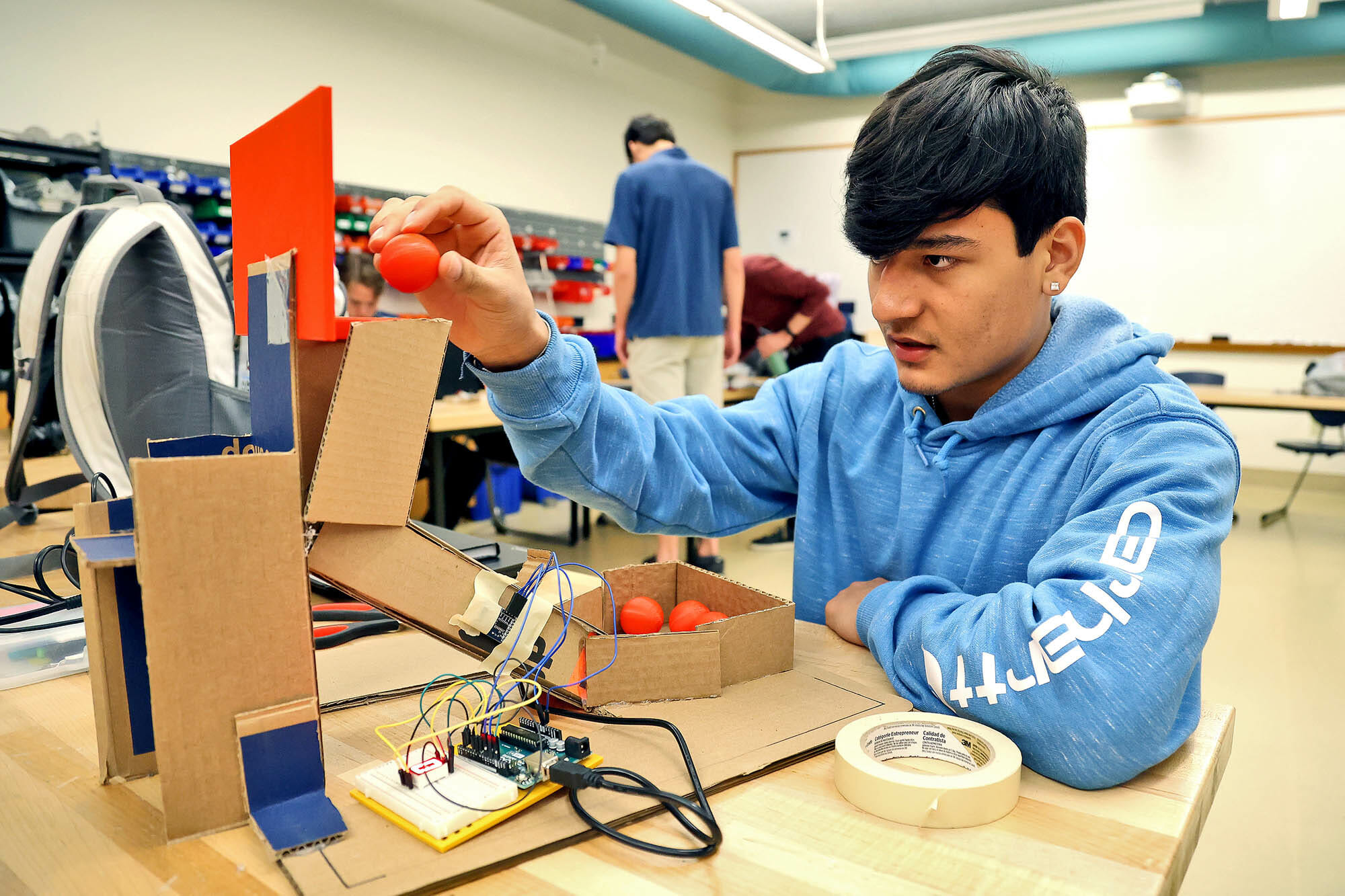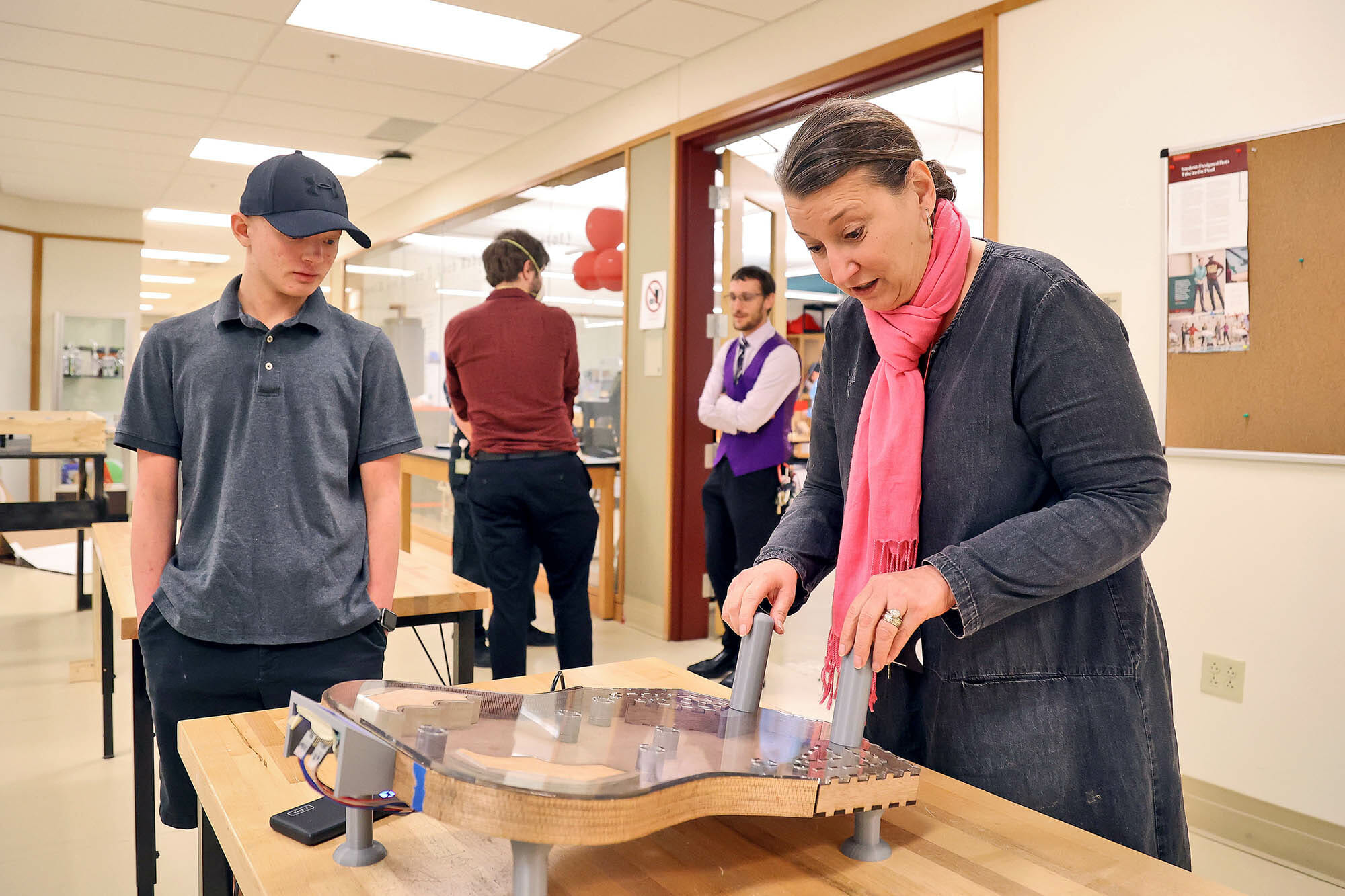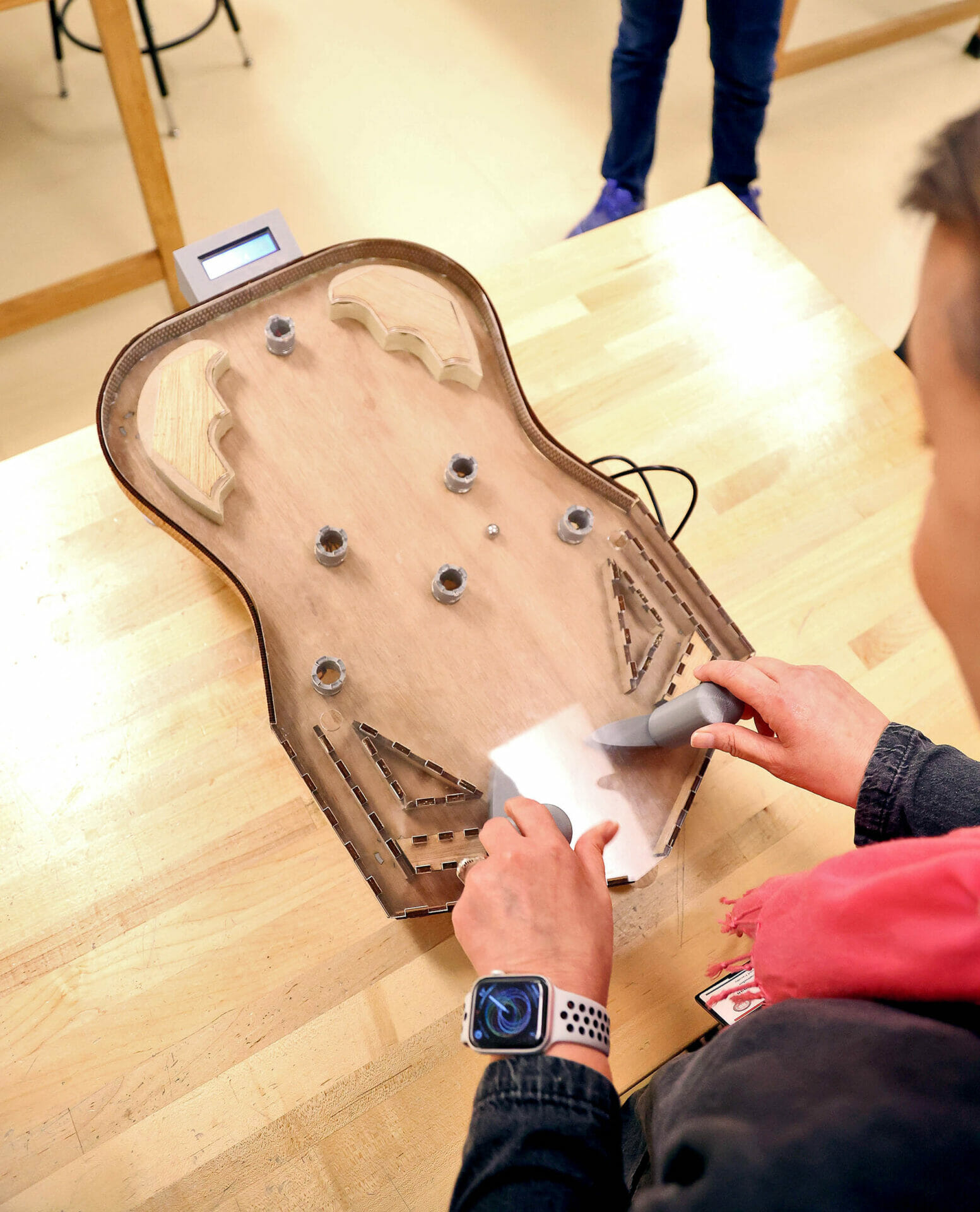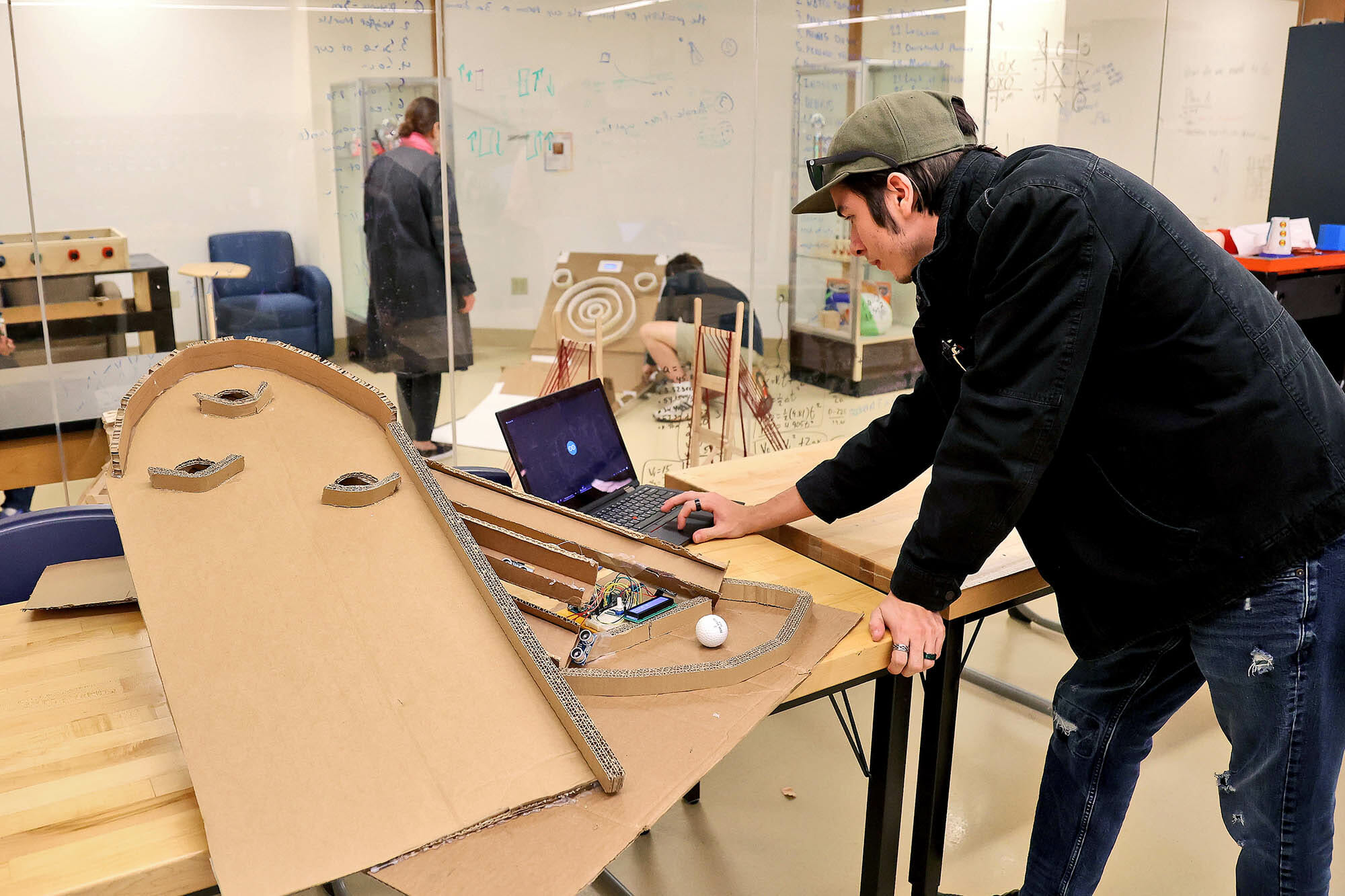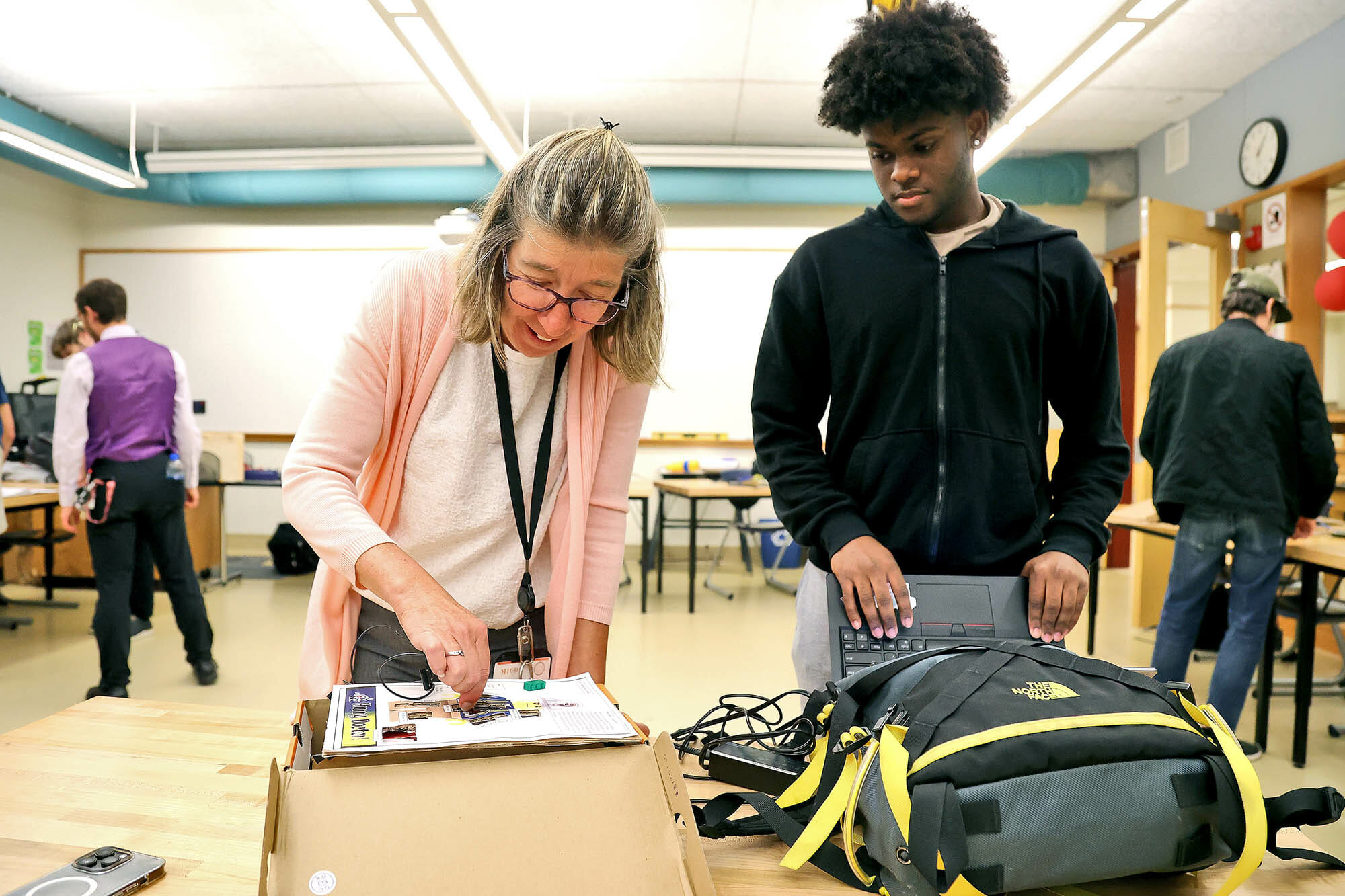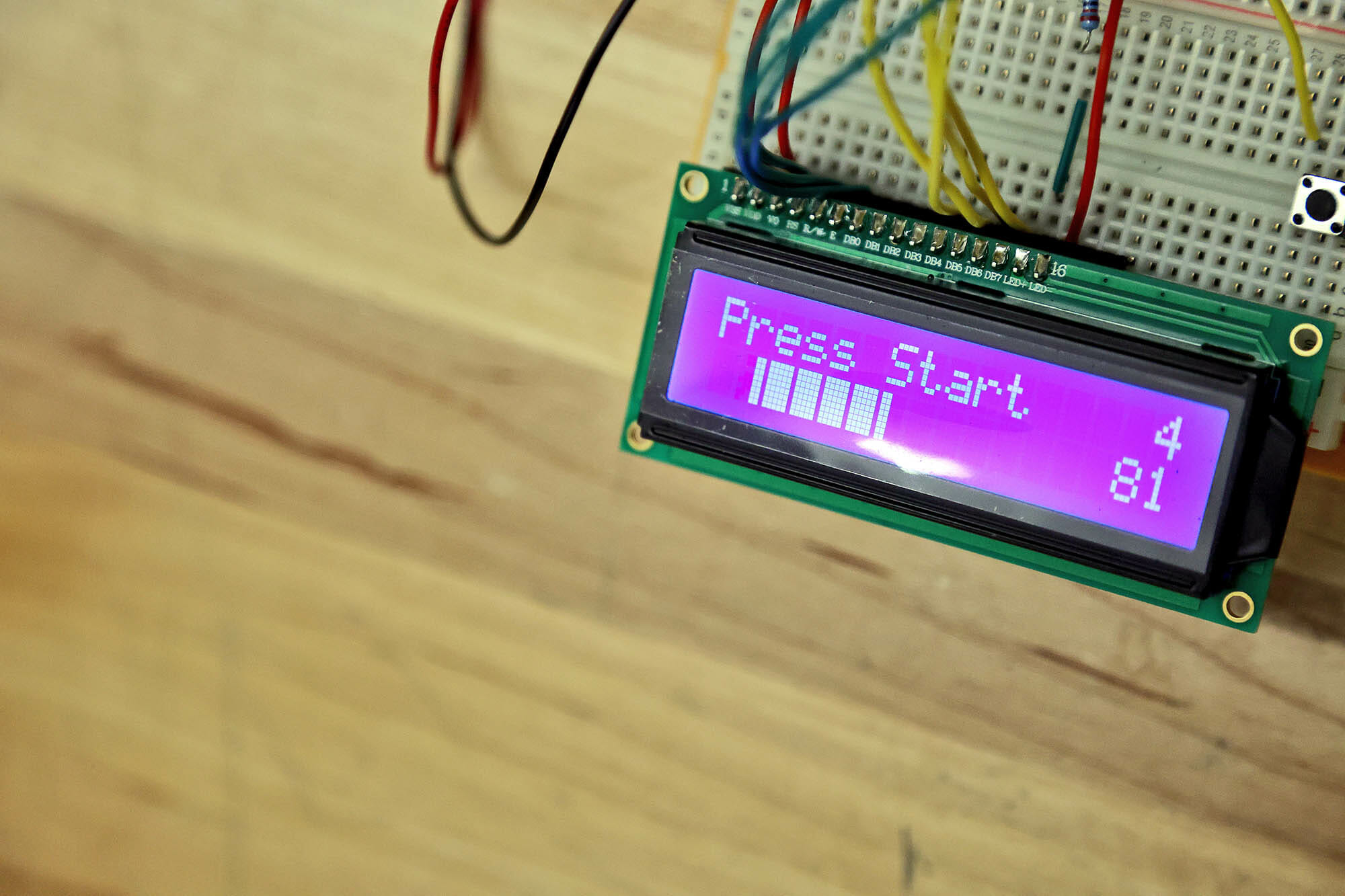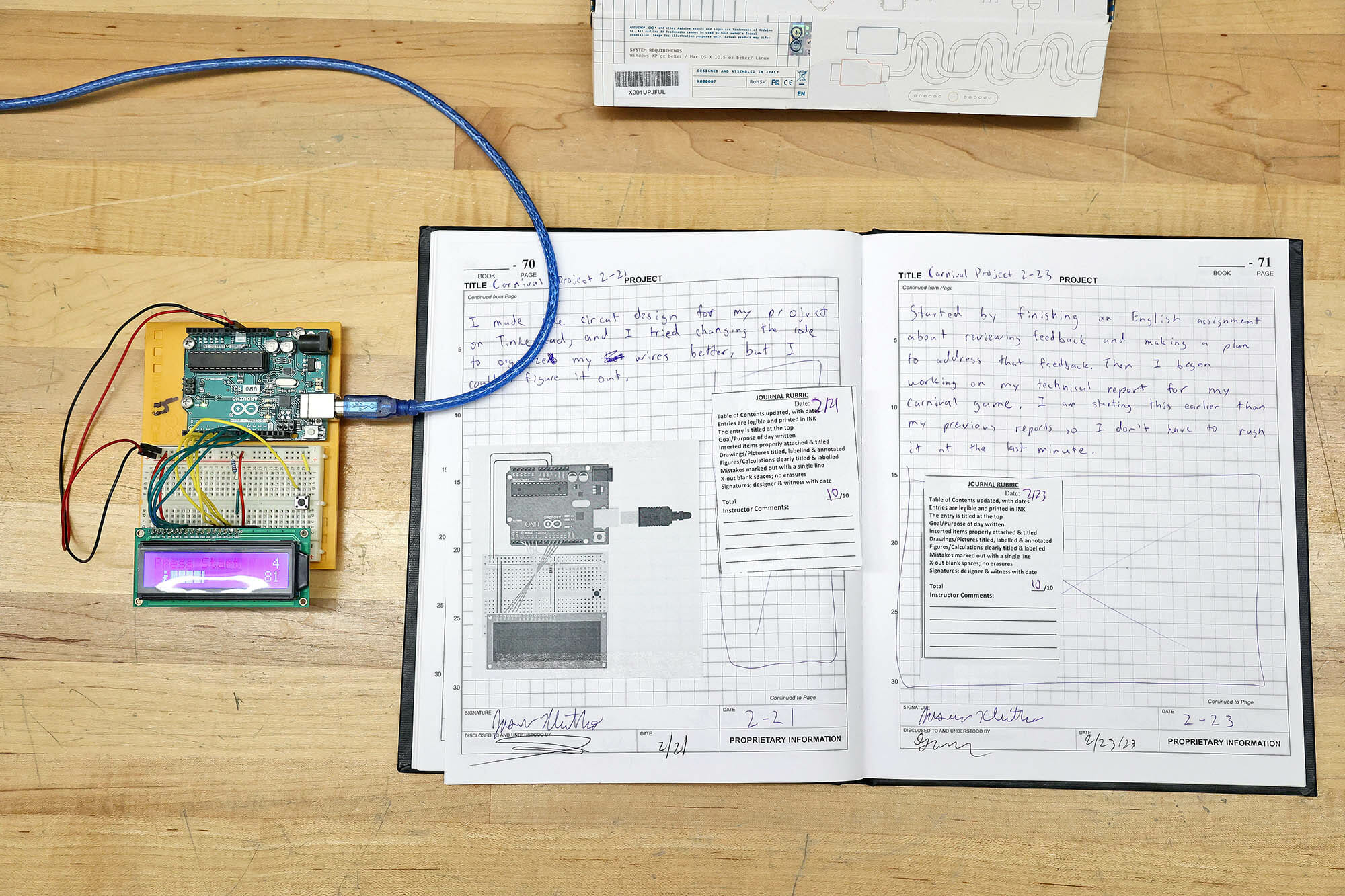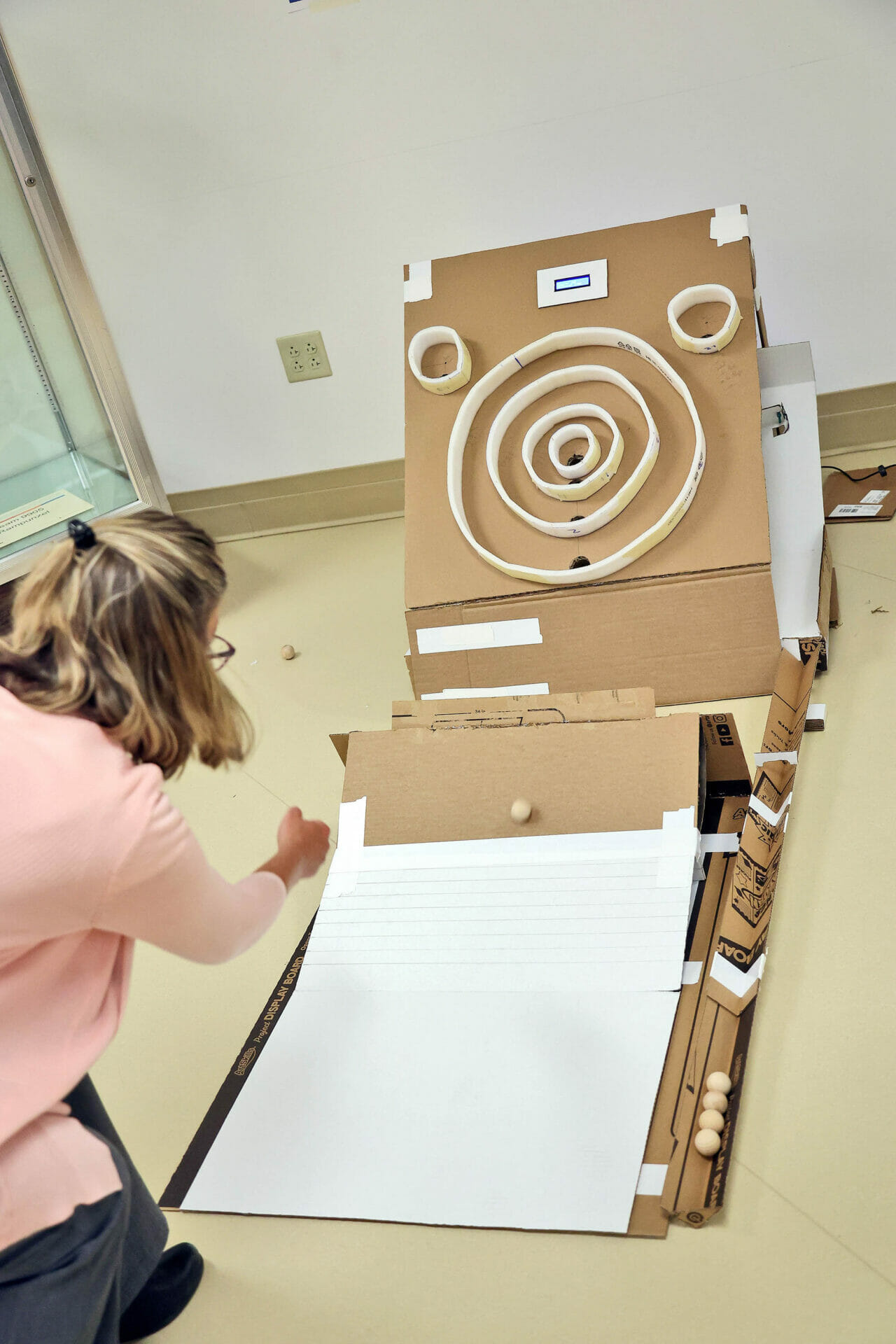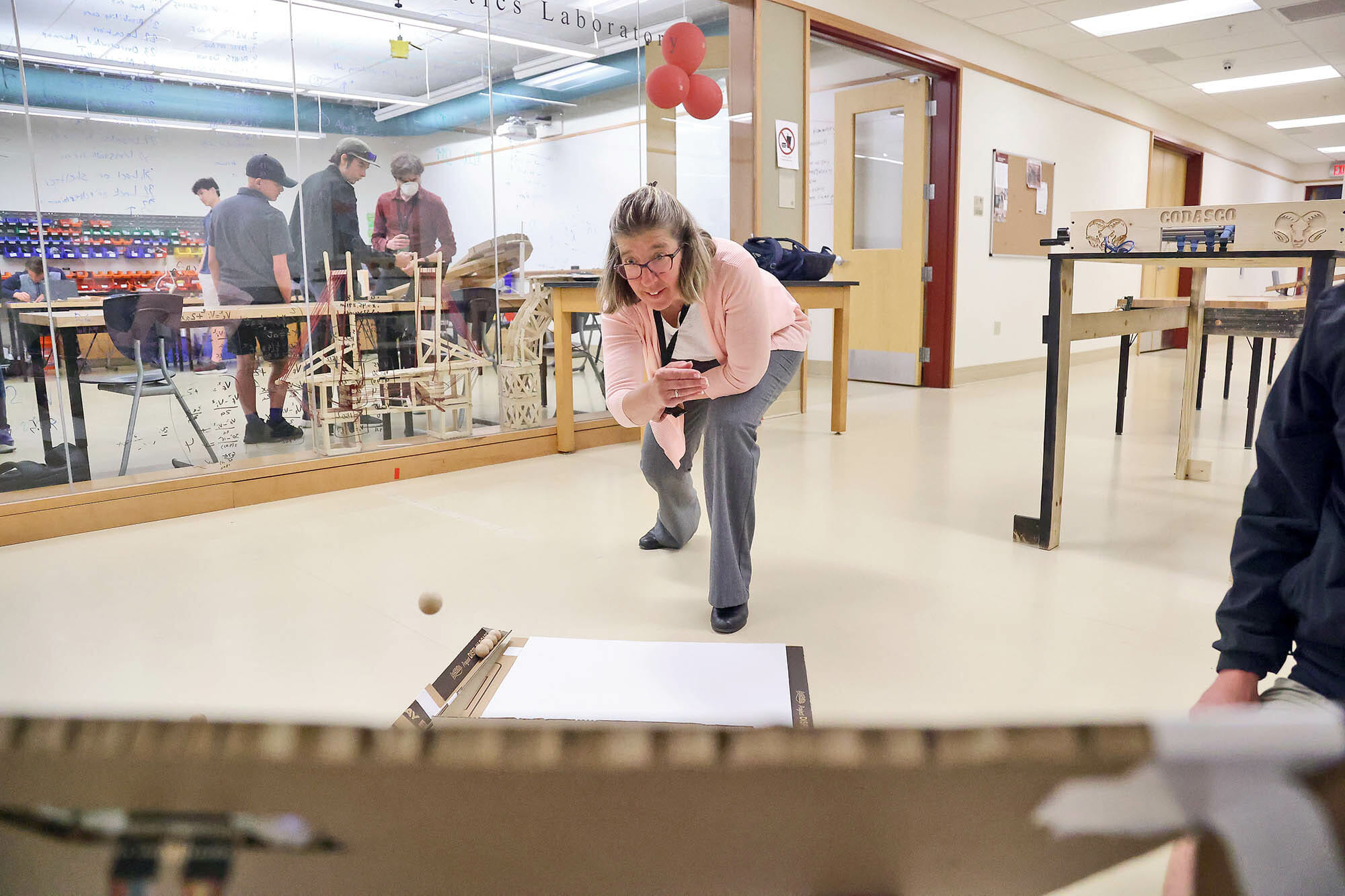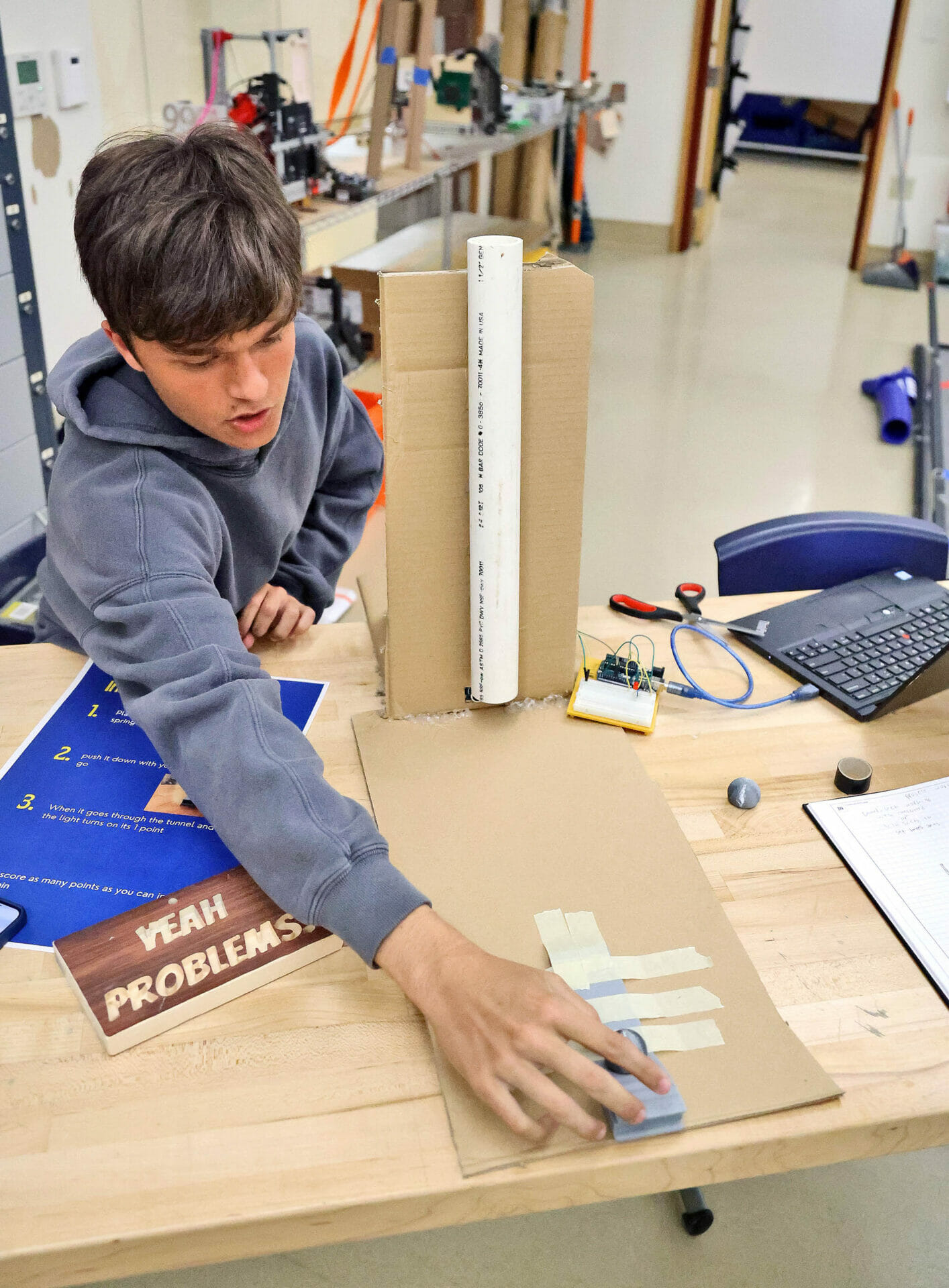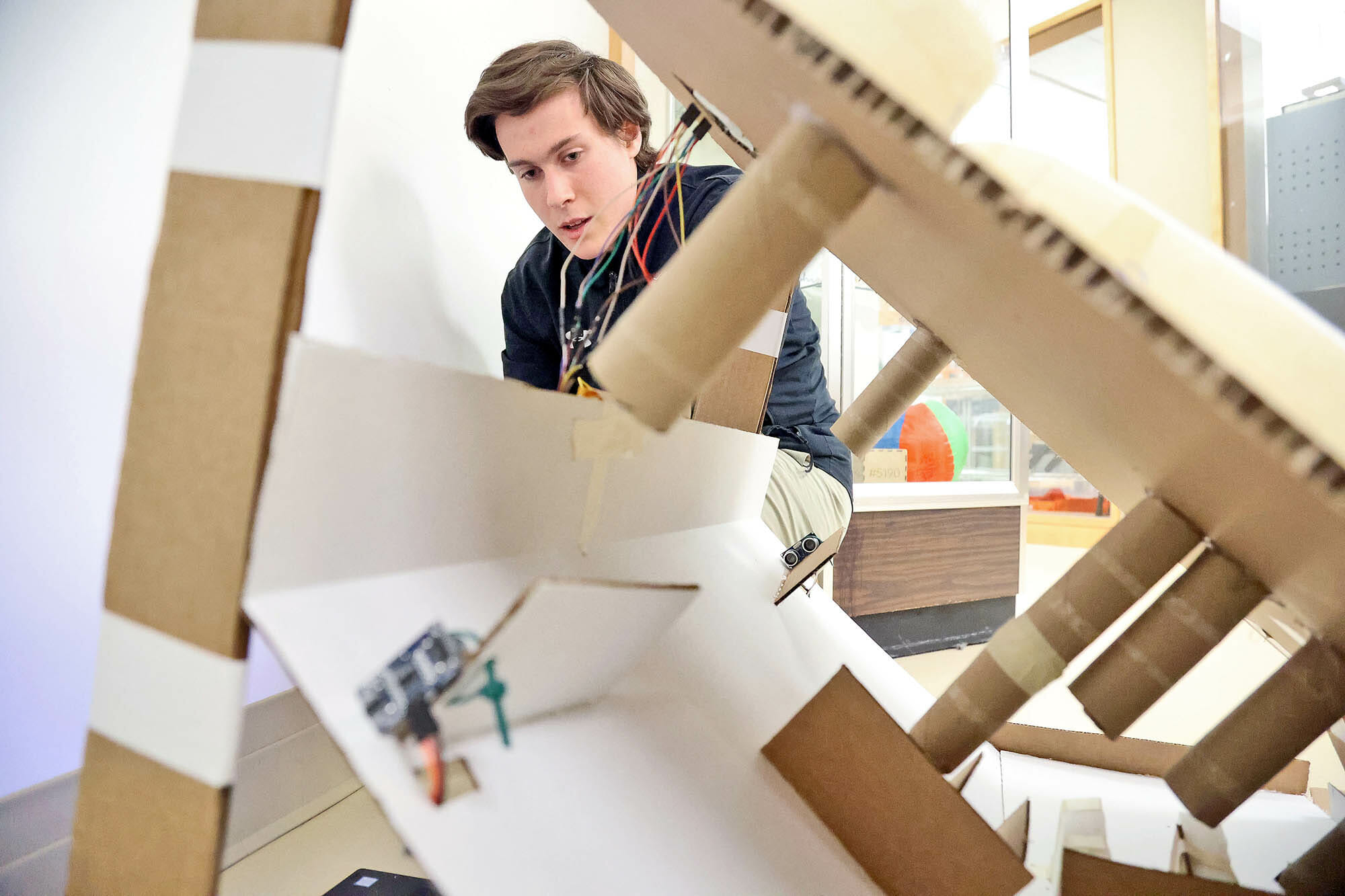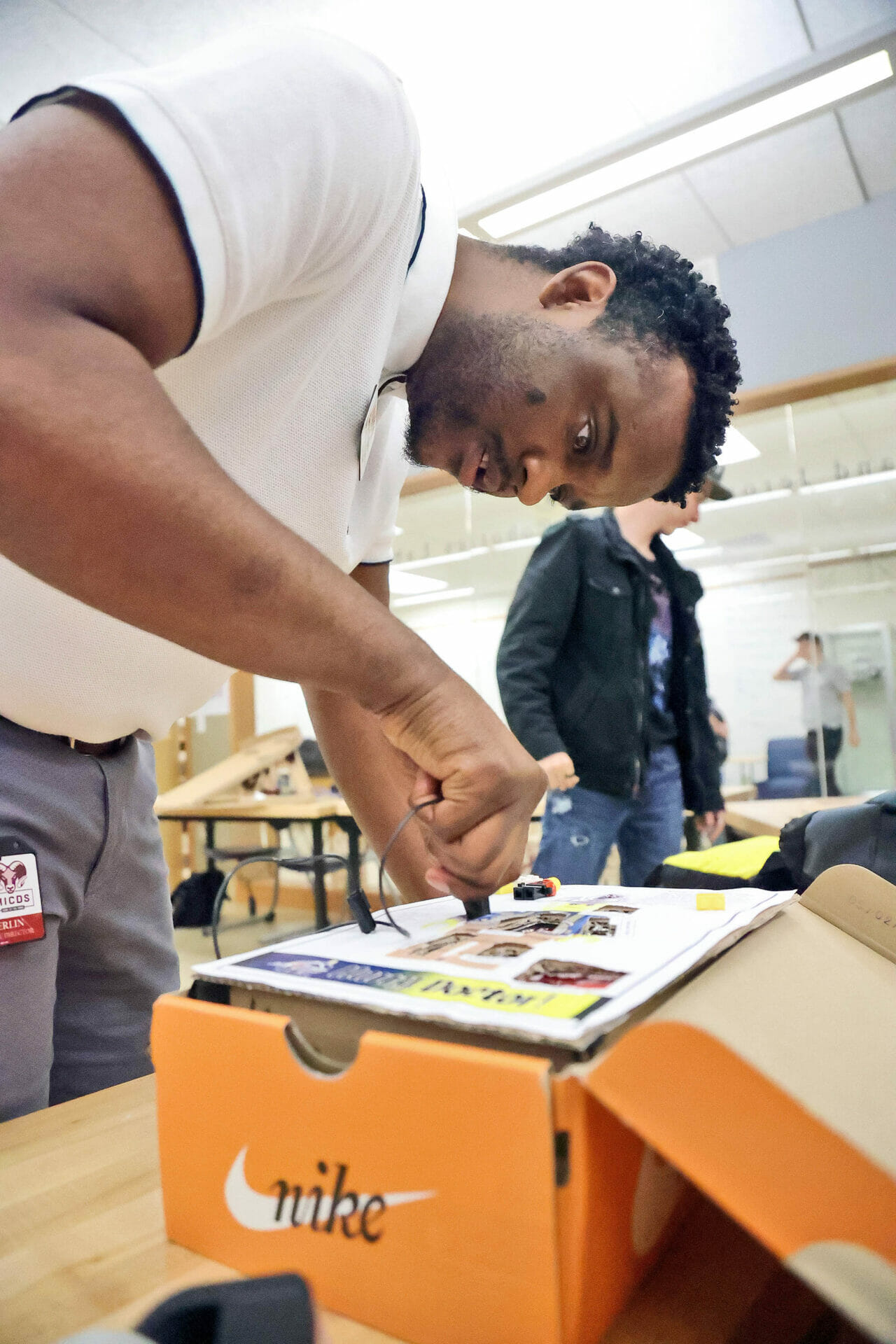No need to go to an arcade. We’ve got a whole suite of carnival games in the Upper School Robotics Lab at MICDS! On Wednesday, students in Upper School Math Teacher Travis Menghini’s Electronics and Robotics class had a special showcase of their work that was fun for everyone. They have been creating carnival games all semester, and Wednesday was the day to share their fun work.
“The intent of this project was to use an Arduino, an open-source electronics platform, to create a game that could be played by a fourth grader in the style of a carnival game,” explained Menghini. “The students did some amazing work and were excited to show it off.” MICDS faculty and staff members were invited to destress and test out the creations on Wednesday by playing the student-created games ranging from foosball, skeeball, and Cyclone to basketball, pinball, and more!
For this project, Menghini wanted to challenge students to use their engineering design skills along with the Arduino knowledge of coding and sensors, combining these components to create a game that could be self-played. “Creating a carnival game was actually a challenge that one of my friends had; he did something similar in college,” said Menghini. “In his class, they had two weeks to create a small and basic carnival game that utilized an Arduino. It allows students to see the connection with CADing, 3D printing, laser cutting, sensors, and code.”
This college-inspired challenge was certainly an exciting one for students to tackle and one that required a bit more than two weeks to pull off more effectively. “What originally sounded like a basic idea wound up being a complex and time-consuming project,” Menghini said. “Instead of something small and basic, my students started to create something more grand and more complex. Therefore, the deadline had to change, and so did the score of the project. It now not only encompasses everything mentioned but also research into the history of their game as well as how to do specific tasks such as programming the sensors to do specific things were also required.”
To get students on the right track, they started this class by exploring all the different types of sensors and outputs that an Arduino can use so they had a basic idea of what they had in the arsenal. When Menghini introduced the Carnival Game project, students already had in their minds what things were possible.
What did some of the students create and learn while building their carnival games? AJ Turnell ’23 originally wanted to design an arcade baseball game inspired by his favorite game at Dave & Busters, but his design transitioned into a skeeball-style game. His design utilized three sensors that kept score as players landed the ball in various holes in the board. Daniel Britt ’23 made a basketball game using Tinker CAD to 3D print the balls and springboard launcher. He also programmed his Arduino board and sensor to keep score as players made baskets.
Samuel Fontana ’23 made a skeeball machine. “It was a pain in the neck to construct, but it’s there, and it works,” he said. “The assignment prompt was ‘make a carnival or arcade game,’ and my brain just immediately gravitated to skeeball.” While creating his game, he discovered the sensors couldn’t detect small balls, so he realized he needed to make a big, floor-standing skeeball replica that could accommodate the larger balls that the sensors could detect. After two months of building out the game, he said, “I think that the programming was much more difficult [than the physical construction]. The actual construction was really simple and basic compared to the many hours and long nights I spent trying to figure out how the electronics work.”
Michio Kamimura ’23 built a take on a basketball carnival game. He used 3D printing to build a hoop and backboard and also agreed that programming was the toughest part. “Programming is more difficult; it’s like learning a different language. I actually had a lot of trouble with the programming, but with time I learned.”
Congratulations to all of the carnival game designers! In our book, you’re all winners at this MICDS carnival!
